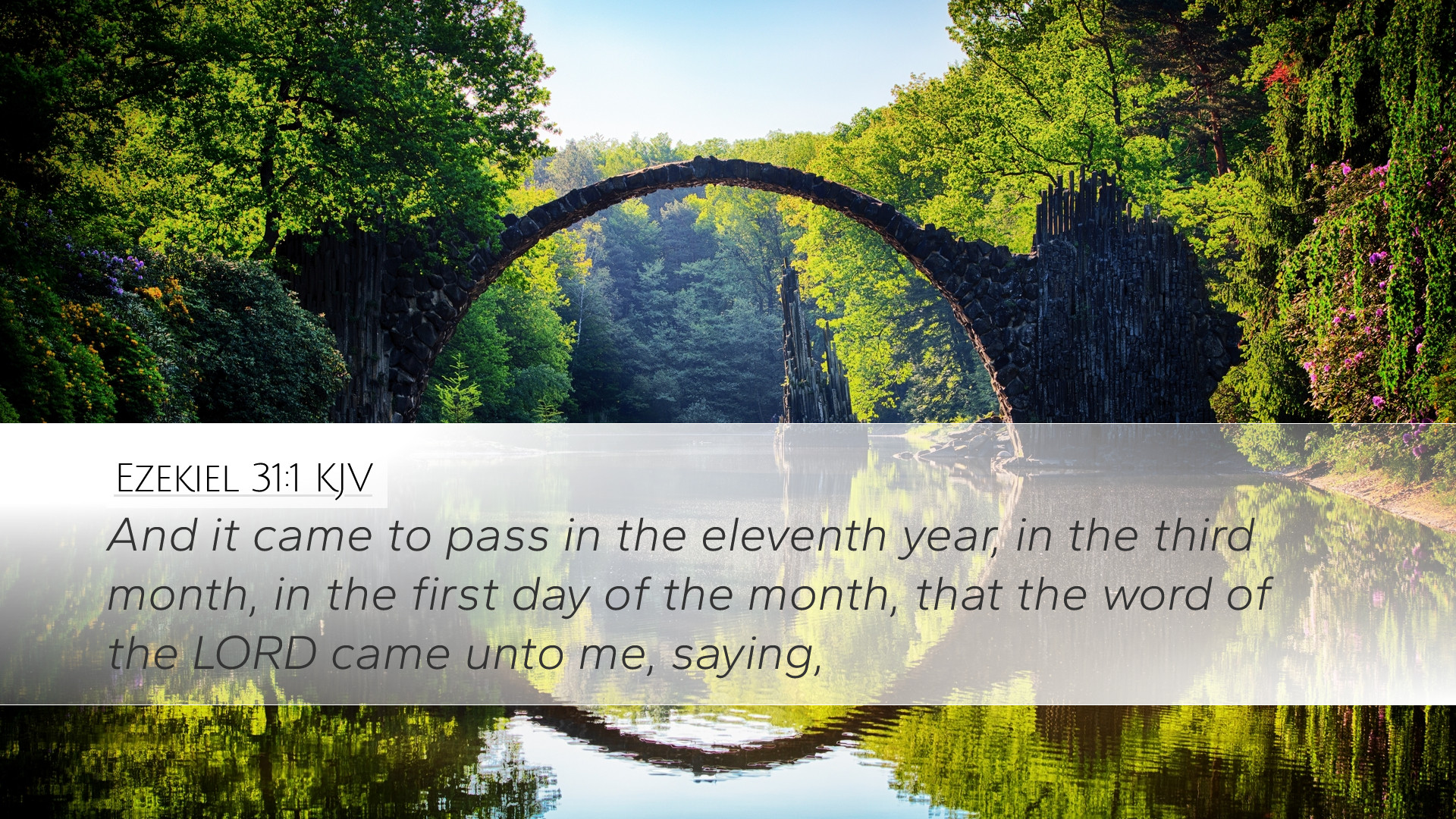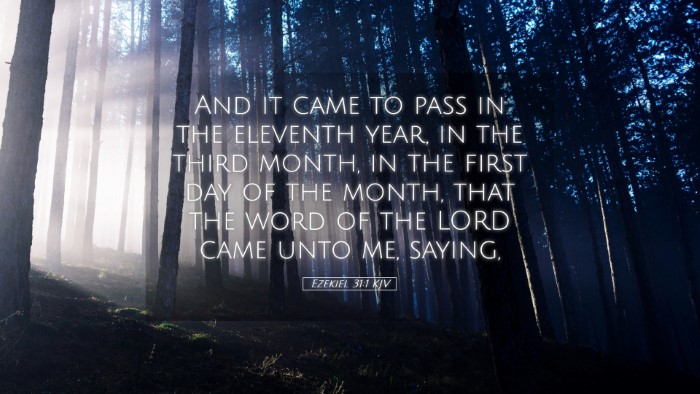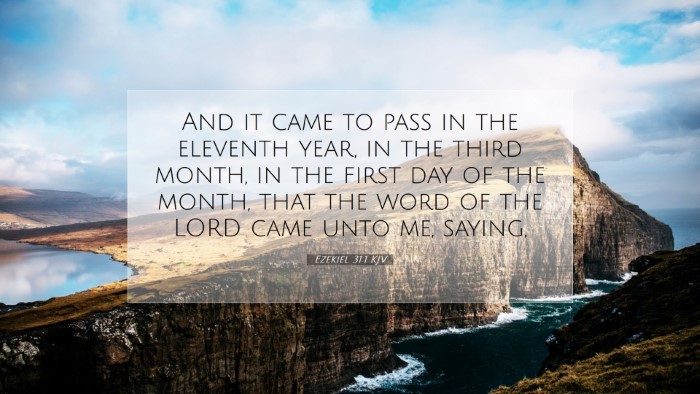Ezekiel 31:1 Commentary
Verse: "And it came to pass in the eleventh year, in the third month, in the first day of the month, that the word of the LORD came unto me, saying," (Ezekiel 31:1)
Introduction
The verse introduces a significant prophetic word from the Lord to Ezekiel, occurring in the eleventh year of King Zedekiah's reign. This period marked a time of impending doom for Israel, and the imagery Ezekiel uses serves to convey deep spiritual truths relevant both at the time of writing and beyond.
Contextual Background
The message of Ezekiel is rooted in a context of judgment, warning, and eventual restoration. The eleventh year indicates that the prophecy comes right before the fall of Jerusalem (586 B.C.), and thus the content becomes crucial for understanding God’s dealings with His people.
Matthew Henry notes that the specific timing emphasized in this verse serves to reinforce the authority and urgency of the prophetic message. The “third month” resonates with the Hebrew calendar; thus, understanding the agricultural cycles helps to appreciate the context Ezekiel is contextualizing.
Interpretation of the Text
Ezekiel 31 provides a parable of the Assyrian empire as a great cedar tree, with the narrative built around various descriptions and metaphors. The structure starts with the divine origin of the message, emphasizing its importance and certainty.
- Divine Initiation: Ezekiel continues to assert that what follows is not human opinion but a direct and authoritative word from God. This is crucial for understanding the prophetic nature of the passages that follow.
- Symbolism of Trees: Trees often symbolize strength, stability, and even pride, making the imagery significant for understanding the nature of Assyria's power and eventual judgment.
- The Role of Prophecy: Albert Barnes maintains that God’s messages aim to enlighten the people regarding both their own fate and the fate of other nations. The prediction serves both as a warning and a demonstration of God's sovereignty in the affairs of nations.
Theological Implications
This passage raises profound theological questions relevant for contemporary readers:
- God's Sovereignty: The prophecy reveals God's control over nations. They rise and fall at His command. This is a crucial reminder for modern believers about the nature of God’s governance in history.
- Warning Against Pride: Throughout biblical literature, pride leads to downfall. The metaphor of the mighty cedar tree serves as a caution against the dangers of arrogance, echoing themes found in the wisdom literature.
- Judgment and Mercy: As we discern God’s judgment throughout Ezekiel’s prophecies, we also see threads of hope for restoration, which encourages scholars and pastors alike to find the balance between justice and grace.
Historical Significance
Ezekiel’s prophecies are grounded in historical events, specifically the fate of nations surrounding Israel. The Assyrian empire, represented here, historically served as an instrument of God's judgment. Understanding this relationship, as outlined by Adam Clarke, provides deeper insights into the reasons for Israel's judgment and the broader implications of divine justice.
Application for Today
The messages contained in Ezekiel hold significant applications for modern readers:
- Spiritual Vigilance: Just as Israel was called to heed the prophetic voice warning of judgment, contemporary believers are invited to reflect on their spiritual conditions and remain alert to God’s word.
- Nations Today: The rise and fall of nations reflect divine will. Christians today are called to pray for national leaders and align their actions with biblical principle to avoid similar judgments.
- The Hope of Restoration: While judgment appears imminent, the consistent message of Ezekiel leads to a hope for restoration, reminding us that repentance brings redemption.
Conclusion
The prophetic word received by Ezekiel stands as a profound testament to the authority of God’s messages, illustrating divine sovereignty over history and warning against the perils of pride. For pastors, students, and scholars alike, the words of Ezekiel 31:1 compel a deeper understanding of God's engagement with His people and the nations of the world.


